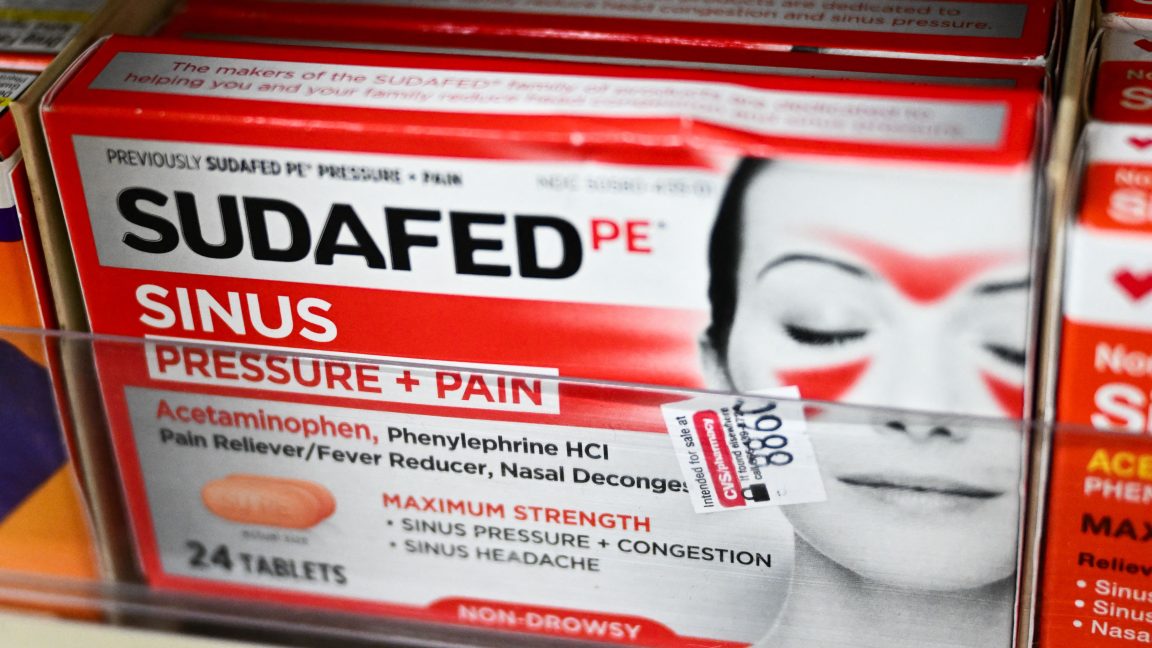In a long-sought move, the Food and Drug Administration on Thursday formally began the process of abandoning oral doses of a common over-the-counter decongestant, which the agency concluded last year is not effective at relieving stuffy noses.
Specifically, the FDA issued a proposed order to remove oral phenylephrine from the list of drugs that drugmakers can include in over-the-counter products—also known as the OTC monograph. Once removed, drug makers will no longer be able to include phenylephrine in products for the temporary relief nasal congestion.
“It is the FDA’s role to ensure that drugs are safe and effective,” Patrizia Cavazzoni, director of the FDA’s Center for Drug Evaluation and Research, said in a statement. “Based on our review of available data and consistent with the advice of the advisory committee, we are taking this next step in the process to propose removing oral phenylephrine because it is not effective as a nasal decongestant.”
For now, the order is just a proposal. The FDA will open up a public comment period, and if no comments can sway the FDA’s previous conclusion that the drug is useless, the agency will make the order final. Drugmakers will get a grace period to reformulate their products.
Reviewed reviews
The slow-moving abandonment of phenylephrine is years in the making. The decongestant was originally approved by the FDA back in 1976, but it came to prominence after 2006. That was the year when the “Combat Methamphetamine Epidemic Act of 2005” came into effect, and pseudoephedrine—the main component of Sudafed—moved behind the pharmacy counter to keep it from being used to make methamphetamine. With pseudoephedrine out of easy reach at drugstores, phenylephrine became the leading over-the-counter decongestant. And researchers had questions.
In 2007, an FDA panel reevaluated the drug, which allegedly works by shrinking blood vessels in the nasal passage, opening up the airway. While the panel upheld the drug’s approval, it concluded that more studies were needed for a full assessment. After that, three large, carefully designed studies were conducted—two by Merck for the treatment of seasonal allergies and one by Johnson & Johnson for the treatment of the common cold. All three found no significant difference between phenylephrine and a placebo.

